Personalized Gifts for Grandparents with Alzheimer’s | 5 Gifts for People with Dementia
Choosing a gift for a loved one with dementia is a chance to offer care, comfort, and small joys. The right item can reduce stress and invite warm moments. Thoughtful gifts should support daily life and respect what the person still enjoys. They should not test memory or add confusion.
This article describes five helpful gifts for someone with dementia and explains why they work for older adults with dementia, from early-stage dementia to later stages.
How Gifts Help People with Different Stages of Dementia
When Alzheimer’s disease or another form of dementia advances, needs change. In early-stage dementia, the person can still join activities and may enjoy puzzles and games that feel familiar.
In the middle stage, focus can fade and agitation can rise. Gifts that give sensory stimulation or clear routines help reduce stress and anxiety.
In late-stage dementia, ones with dementia respond best to touch, sound, and simple visuals. A meaningful gift can keep someone calm, bring back happy memories, and give family a way to share time together.
1. Hug Letters
.BgE0RUEB_2pJWdE.webp)
.BgE0RUEB_HsAqO.webp)
Hug Letters
Monthly family newspaper with photos and stories that arrives in the mailbox, sparking conversation and happy memories.
Hug Letters is a family newspaper that brings fresh family photos and short stories to your loved one's mailbox each month. Family members upload images and a few lines on an app. The team creates a clear journal and mails it to grandparents. The pages show family photos in a warm, simple layout. For older adults with dementia, printed family photos can spark names and friendly words without pressure. A Hug Letters journal gives regular contact in a form that feels private and familiar. It can help reduce loneliness and give a steady prompt for conversation. Over months, the journals form a gentle record of family life and happy memories that you can return to again and again. A monthly family journal like this can become one of the best gifts you give a loved one.
2. Fidget Busy Board
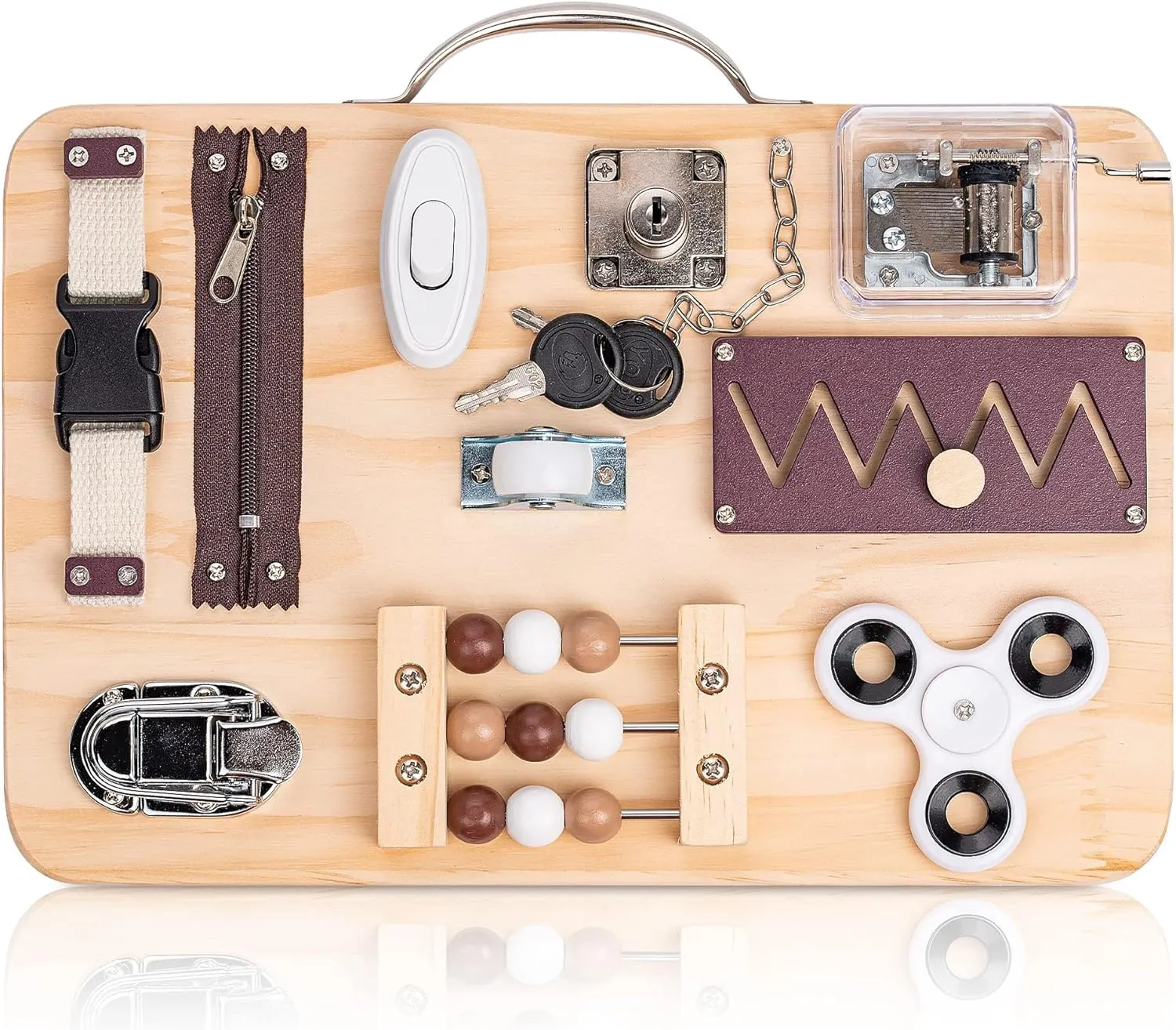
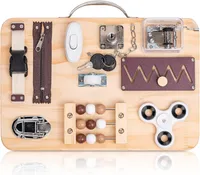
Fidget Busy Board
Sensory board with tactile pieces that keeps hands busy, reduces agitation, and provides calming focus.
A busy board offers tactile pieces for hands to work with. This sensory activity can help reduce agitation and give a sense of calm. It fits people who like to hold or manipulate objects and those who need a safe pastime. For someone with dementia, a fidget board can support fine motor skills, provide sensory stimulation, and keep restless hands busy. It also offers a quiet focus during visits and helps redirect stress. Place the activity board where it is easy to reach. Let the person lead the motion and do not correct their way of using it. The aim is a steady sense of calm and an engaging activity that occupies hands and mind without pressure.
3. Smart WiFi Digital Photo Frame
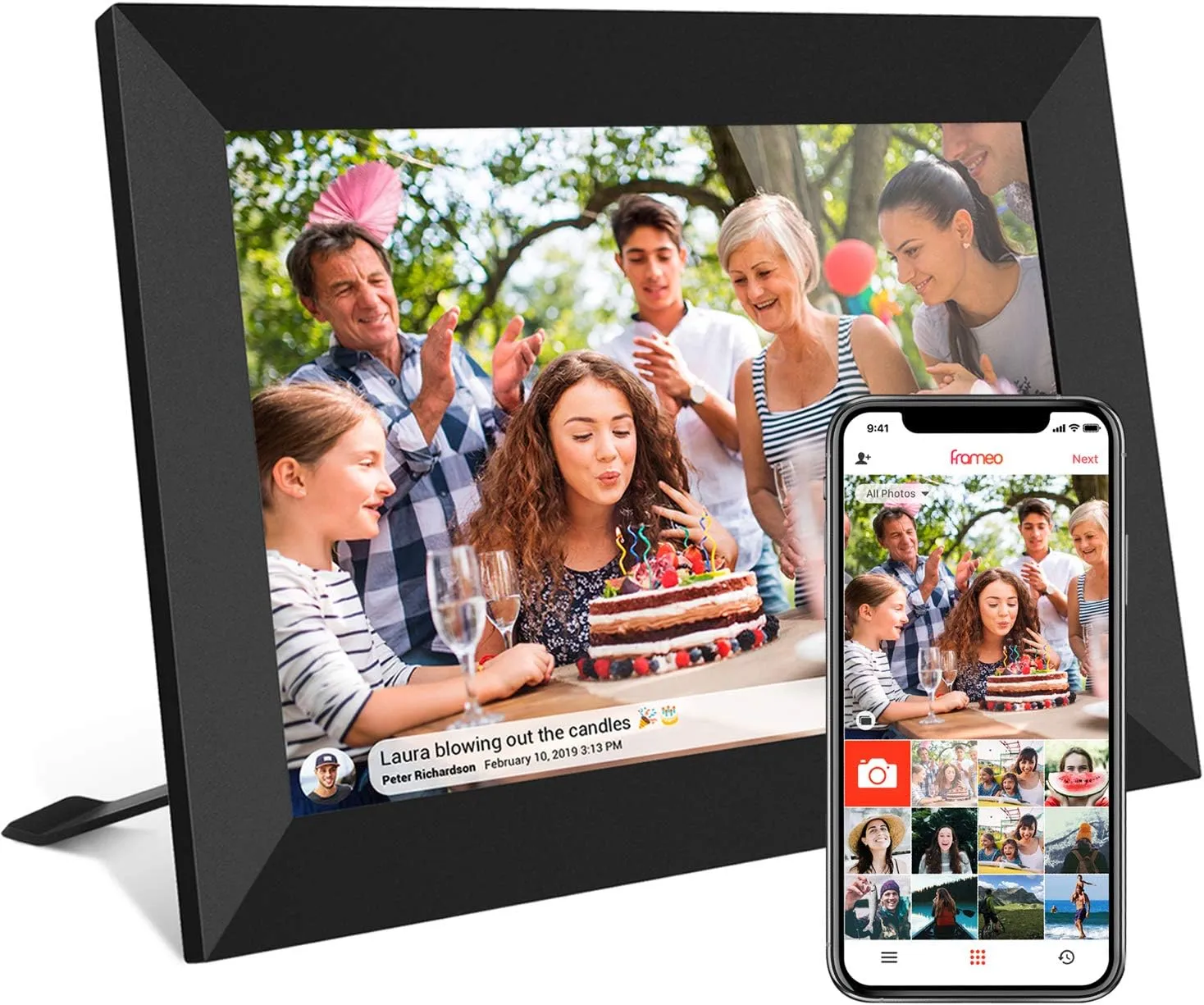
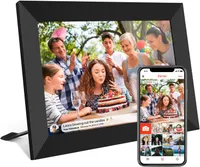
Smart WiFi Digital Photo Frame
WiFi photo frame that displays family photos sent from anywhere, helping spark names and happy memories.
A WiFi digital frame keeps family photos and short videos in rotation without the need for a phone or tablet. Relatives can send new images from anywhere, so the display stays fresh. For older adults, a steady slideshow of family photos can spark names and recall happy memories. This model is easy to set up and has a clear screen that shows images at a comfortable pace. Place the frame in a main room and use captions with simple names and short notes like 'Anna at the park' or 'Sunday lunch.' A digital frame can act like a gentle companion in the room and can help your loved one feel more connected to family life.
4. Talking Alarm Clock
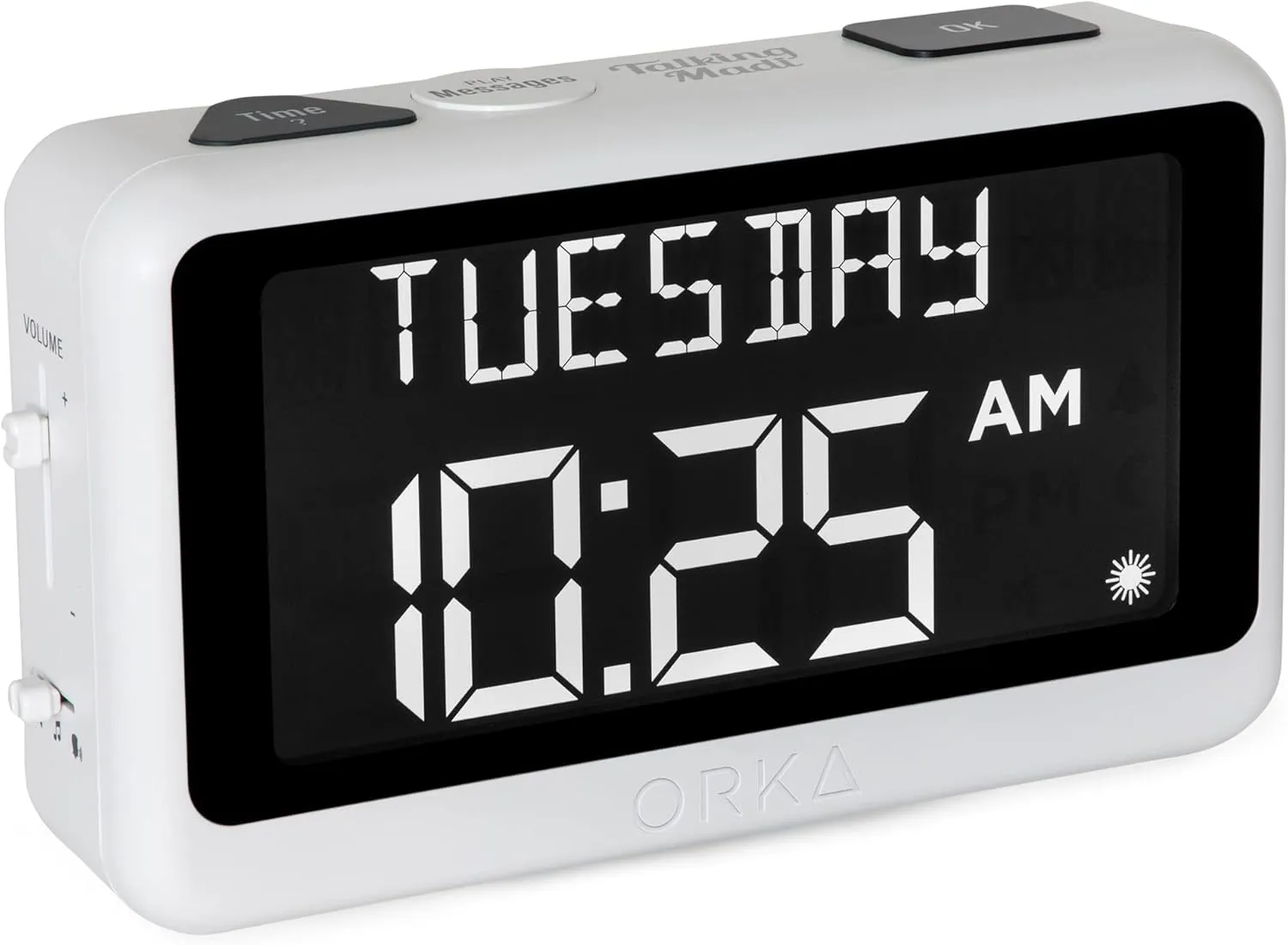
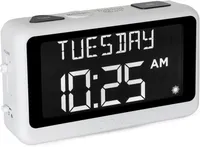
Talking Alarm Clock
Clock with large display that speaks time and day aloud, with customizable voice reminders for medication and routines.
A talking clock helps with routines and medication reminders. It shows time in large text and speaks the time and day when pressed. This tool reduces the risk of missed doses and supports independence. You can record brief voice reminders in a calm tone, such as 'Time for your morning medicine.' The looped alarm feature helps when a person does not respond at once. Set alarms for meals, rest, and medication to build a steady day. A clear display and a voice that the person recognizes can lower stress and reduce confusion. A talking clock can be a practical gift for someone with dementia and a real help to caregivers.
5. Conversation Cards
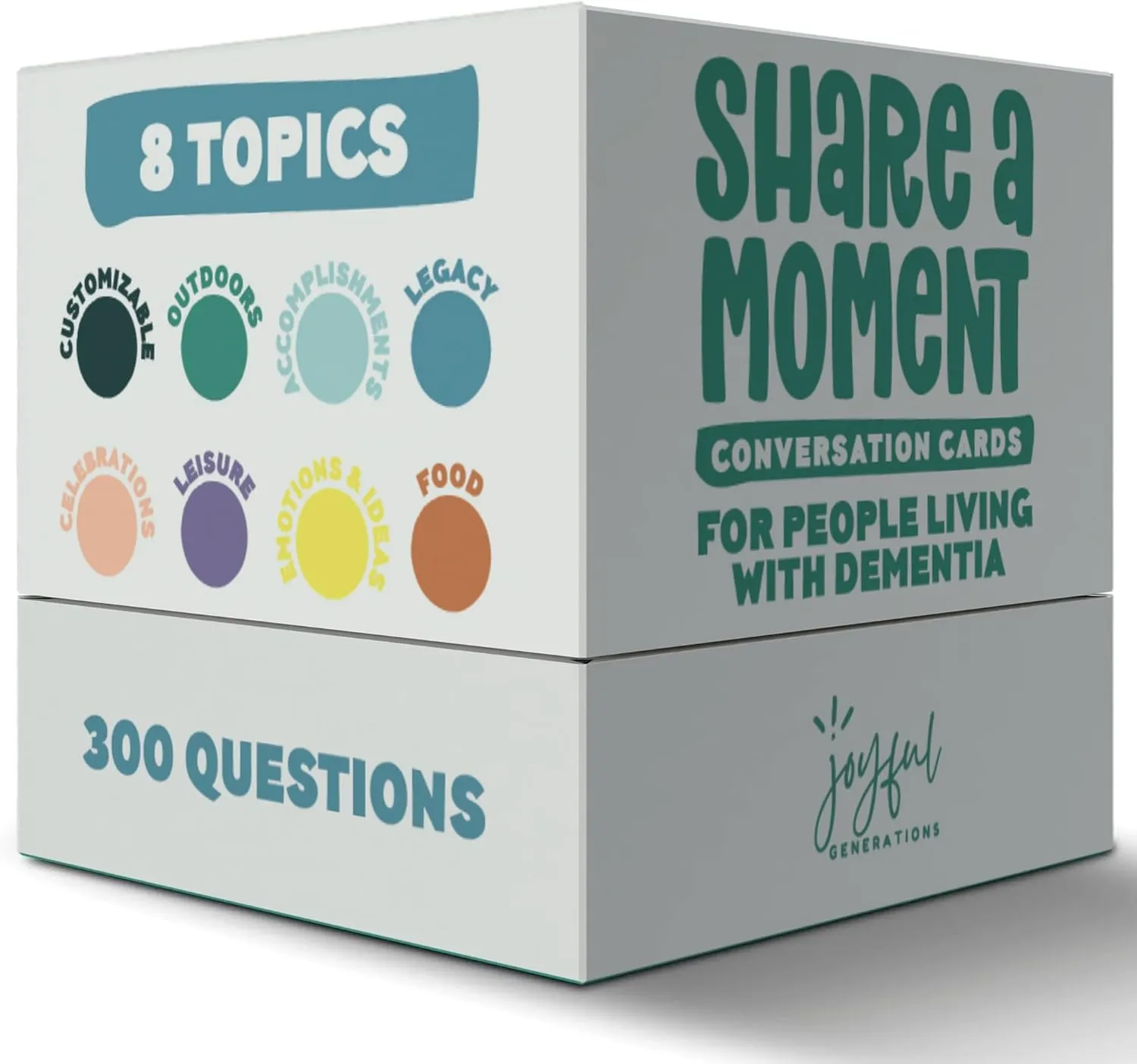
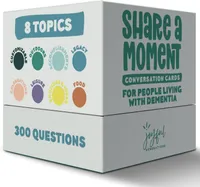
Conversation Cards
Simple prompt cards that encourage gentle conversation without testing memory, making visits more natural and relaxed.
Conversation cards give simple prompts that lead to gentle talks without testing memory. This set includes present-based questions that invite sharing about favorites, small moments, or simple ideas. For many people with dementia, these prompts remove pressure and encourage smiles. Use the cards during visits, at the table, or in a quiet chair. Read a card slowly and give time for an answer. If the person pauses, offer your own short reply to model the tone. The cards work well for family time and for care staff during group visits. These cards can help you spend quality time and make conversation feel natural again.
Conclusion
Gift giving for someone with dementia or Alzheimer, calls for thought and compassion. Choose dementia-friendly and meaningful gifts that reduce agitation and invite comfort. Hug Letters stands out as a meaningful, ongoing gift that brings family photos and short stories to your loved one’s mailbox.
Pair it with a tactile board, a digital photo frame, a talking clock, or conversation cards to support daily life and make visits richer. These helpful gifts can make your loved one feel seen, calm, and loved.

About Martin Gouy
Martin is the founder of Hug Letters. Hug Letters is a family newsletter for grandparents. Every month, grandparents receive a heartwarming newspaper with photos and stories from the whole family.

